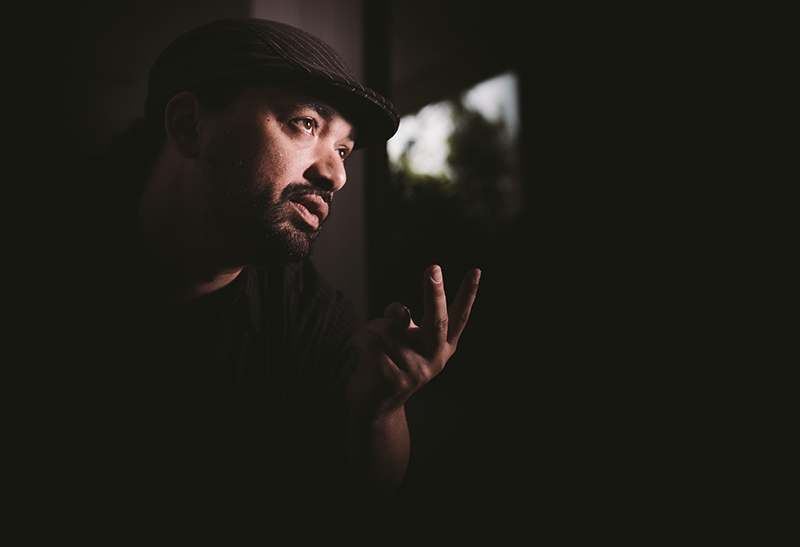12 May 2016
The evolution of SEO: Insights from an expert

While perusing jobs on Craigslist in 2007, Alan Bush came across one that looked interesting—a project manager for search engine optimization (SEO)—so he applied. The very next day he scored an interview with a prominent Internet marketing company, not even knowing what SEO was.
“Before I met with the company’s CEO, I had to look up SEO on Wikipedia because I had no idea what that word meant,” he said of the growing field of SEO, which in its essence uses a variety of strategies, techniques, and tactics to increase the amount of visitors to a website.
Nevertheless, Bush landed the job and has been hooked on SEO ever since.
“I liked SEO because it was an emerging technology,” said Bush, who worked as an executive assistant, financial analyst, and loan broker before joining the SEO revolution. “You have to be a marketer, and it combines things I was good at: working with people, website technologies, creativity, content strategy, and analytics. I was managing people’s campaigns; it was exciting to see those strategies work.”
Nearly a decade later, Bush is a premier digital marketing expert and sought-after SEO specialist, having worked with hundreds of clients (both Fortune 500 and start-ups) and even cocreating and cohosting two popular Internet marketing-related podcasts. He has certainly ridden the wave of success with SEO, one of the fastest growing forms of Internet marketing.
Bush, currently the director of strategy of San Diego-based Internet marketing firm Ignite Visibility, also shares his SEO wisdom via Search Engine Optimization (SEO) and Marketing, a course through UC San Diego Extension. Through the class, students learn how to optimize websites for better rankings with top search engines; rewrite HTML code, titles and tags; choose competitive keywords; write optimized content; and create a successful linking plan.
The benefits of SEO, Bush said, include enhanced visibility, better brand awareness, and increased sales. He likens SEO to tuning up a car—it ultimately runs better.
“SEO is the foundation of all digital marketing,” the University of Southern California graduate said. “With SEO, you have to clearly articulate what you are trying to convey, make the website user-friendly and search-engine-friendly, and reach out to influencers as well as your customers. If you can master SEO, you have a solid foundation for any other type of digital marketing.”
Bush—who spent much of his youth in Cape Cod, Massachusetts—said SEO has evolved so much in the last few years that marketers sometimes have a hard time keeping up.
“More and more tools have been taken away from an SEO’s arsenal,” he said. “Google is constantly changing the direction of what can and cannot be utilized for SEO. It’s a constant challenge to keep up with the emerging technologies, updates, and penalties associated with your website on search engines.”
Bush said the continued rise of mobile technology will greatly impact SEO, and websites that are not mobile-friendly will be missing out on opportunities.
“Because mobile is becoming more and more accessible, it’s important to pay attention to how the user experience of the website influences buying decisions,” he said. “SEOs have to really add CRO, or conversion rate optimization, to their arsenal for both desktop and mobile users. Also bear in mind mobile devices have different sizes and shapes; smart phones, tablets, ‘phablets,’ and even the computer eyewear and emerging VR (virtual reality) technology will change the game even further.”
Social media has also changed the way SEO specialists reach consumers. Now, marketing teams need social media specialists to help drive brand recognition, Bush said. The evolution of SEO also has created an employment boom in the industry. The top US cities with the highest number of SEO jobs are New York, Los Angeles, and San Francisco, according to digital creative staffing agency Onward Search. San Diego ranks number thirteen. The average annual salary for an SEO analyst/specialist in San Diego is $41,000–$75,000; a content/keyword strategist earns $64,000–$93,000; an SEO manager makes $58,000–$86,000; and an SEO/search marketing manager pulls in $64,000–$113,000.
 Besides landing well-paying jobs, those who learn SEO also can boost their skills and value for current and future employers, Bush said. His UC San Diego Extension classes, for example, include a mix of university students, company owners, and marketers.
Besides landing well-paying jobs, those who learn SEO also can boost their skills and value for current and future employers, Bush said. His UC San Diego Extension classes, for example, include a mix of university students, company owners, and marketers.
“I want my students to understand the principles of marketing, not just SEO,” he said. “The foundation of marketing is being able to apply these skills to their website and thought process. SEO incorporates content, social media, technical knowledge, and understanding of how a website works. People who are not traditionally marketers, but a graphic designer, for example, can learn SEO, which is going to add to her repertoire of what she can accomplish—she can design websites and market them, so she will add value to her job.
“I’m not only teaching my students what to do, but why they are doing it,” Bush added. “It’s important to understand the strategy behind it. It’s not just about plugging in a keyword; it’s about teaching them how to be marketers and how to think. They are increasing their value because they bring a specialty to the table. I thoroughly enjoy teaching and conveying my experience to bright and wonderful students. It’s rewarding for me.”